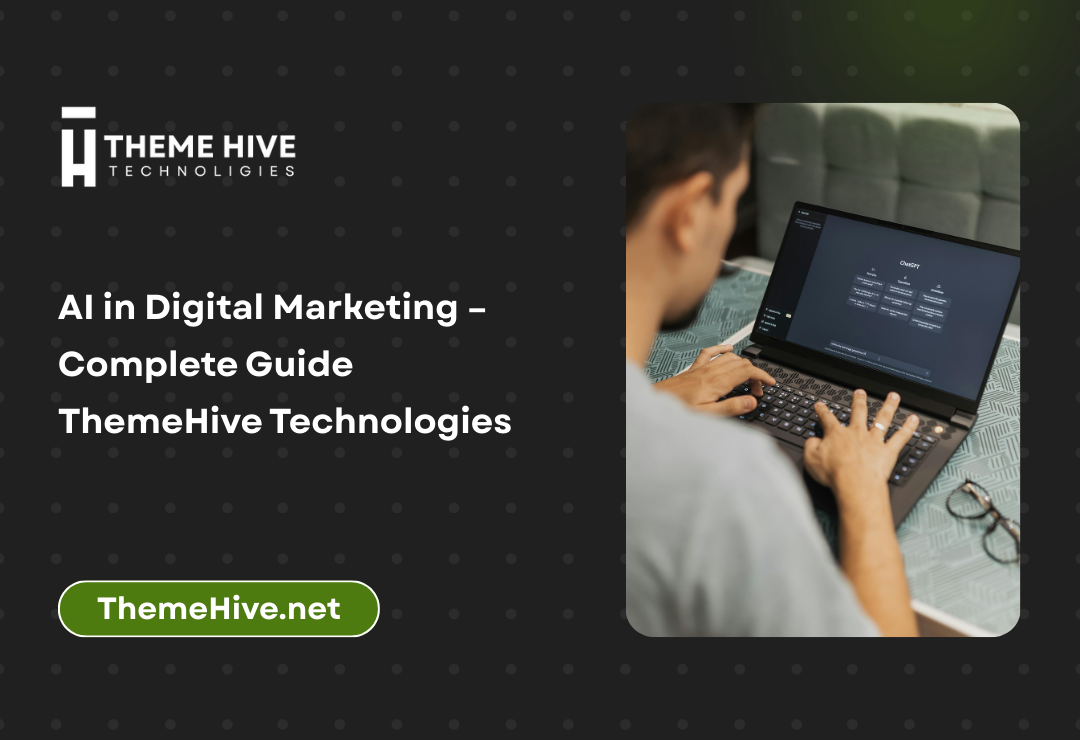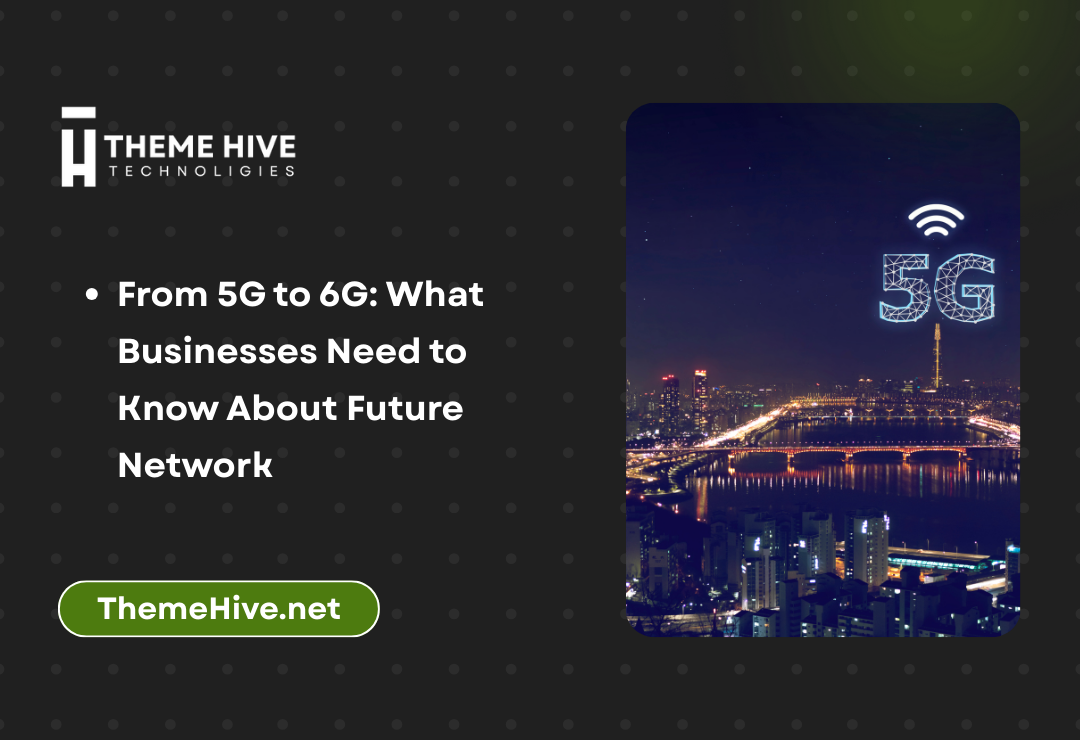Artificial Intelligence (AI) has rapidly evolved from being a futuristic concept to becoming a central part of business strategies across industries. In the realm of digital marketing, AI is revolutionizing how brands understand customers, deliver personalized experiences, and optimize campaigns. With the increasing reliance on data-driven strategies, AI in digital marketing is no longer optional—it is essential for staying competitive.
This guide explores the role of AI in digital marketing, its benefits, real-world applications, challenges, and future trends. Businesses, including small to mid-sized companies, can leverage AI tools to improve efficiency, boost ROI, and enhance customer engagement.
What is AI in Digital Marketing?
AI in digital marketing refers to the use of artificial intelligence technologies such as machine learning, natural language processing (NLP), and predictive analytics to automate, analyze, and improve marketing strategies. Unlike traditional methods, AI can process massive amounts of customer data, identify trends, and make predictions in real time.
Key AI Technologies in Digital Marketing
- Machine Learning (ML): Helps identify patterns in user behavior and predict outcomes.
- Natural Language Processing (NLP): Powers chatbots, sentiment analysis, and voice search optimization.
- Predictive Analytics: Improves targeting and personalization by forecasting customer needs.
- Computer Vision: Enhances product recognition and visual search.
- Generative AI: Creates marketing content like ads, emails, or even videos at scale.
Importance of AI in Digital Marketing
AI is reshaping marketing strategies by enabling businesses to:
- Personalize customer experiences – Deliver tailored messages and offers.
- Optimize marketing campaigns – Use real-time data to adjust budgets and targeting.
- Enhance customer support – Provide 24/7 assistance with AI-powered chatbots.
- Improve content creation – Automate repetitive tasks like ad copywriting.
- Boost ROI – Focus spending on high-performing channels and audiences.
Benefits of AI in Digital Marketing
1. Enhanced Personalization
AI allows businesses to create highly customized experiences by analyzing browsing history, purchase patterns, and demographics. For example, Netflix uses AI to recommend shows based on user preferences.
2. Improved Targeting
AI-powered tools enable marketers to identify the right audience at the right time, improving ad relevance and reducing wasted spend.
3. Automated Campaign Management
AI systems can manage PPC campaigns by adjusting bids, pausing underperforming ads, and reallocating budgets.
4. Better Decision-Making
With predictive analytics, marketers can forecast trends and make data-driven decisions.
5. Cost Efficiency
Automation reduces the need for manual work, saving both time and money.
Real-World Applications of AI in Digital Marketing
1. Chatbots and Virtual Assistants
AI-powered chatbots offer instant responses, resolve common queries, and improve user satisfaction. Many e-commerce platforms integrate chatbots to handle thousands of customers simultaneously.
2. Predictive Customer Behavior Analysis
Brands like Amazon use predictive analytics to suggest products that customers are likely to purchase.
3. Content Generation
Generative AI tools create blog posts, ad copies, and even product descriptions, helping marketers scale content marketing.
4. Programmatic Advertising
AI automates ad buying and placement, ensuring that ads reach the right audience in real time.
5. Email Marketing Optimization
AI helps determine the best time to send emails, subject line optimization, and content personalization.
6. Voice Search Optimization
With the rise of voice assistants, AI enables marketers to optimize content for voice queries.
7. Social Media Monitoring
AI tools analyze sentiment, track trends, and measure campaign performance on platforms like Twitter, Instagram, and LinkedIn.
Challenges of AI in Digital Marketing
1. Data Privacy Concerns
The collection and use of customer data raise ethical and regulatory challenges, especially with laws like GDPR.
2. High Implementation Costs
Small businesses may find AI tools expensive to adopt and integrate.
3. Dependence on Data Quality
AI is only as effective as the data it processes. Poor data quality can lead to inaccurate predictions.
4. Lack of Human Touch
Over-reliance on AI may make customer interactions feel impersonal.
5. Complexity of Integration
Integrating AI into existing systems often requires technical expertise.
Future of AI in Digital Marketing
1. Hyper-Personalization
AI will enable even more personalized experiences by analyzing real-time user behavior.
2. AI-Powered Visual Search
More businesses will adopt visual search, allowing users to search products using images.
3. Ethical AI and Transparency
Companies will focus on building trust by using AI ethically and transparently.
4. Predictive Lead Scoring
AI will help sales teams identify high-quality leads more effectively.
5. AI in Video Marketing
AI will assist in video editing, captioning, and even generating personalized video ads.
Best Practices for Implementing AI in Digital Marketing
- Start Small – Begin with simple tools like chatbots or AI-powered email marketing.
- Focus on Data Quality – Ensure accurate, clean data for better AI insights.
- Prioritize Customer Privacy – Stay compliant with regulations like GDPR.
- Combine AI with Human Creativity – Use AI for automation, but rely on human marketers for strategy.
- Continuously Optimize – Monitor AI performance and refine campaigns accordingly.
Internal Links
- About Theme Hive – Learn more about who we are.
- Our Services – Discover the digital solutions we offer.
- News & Articles – Stay updated with our latest guides.
- Contact Us – Get in touch with our experts.
- Theme Hive IT Solutions – Explore our full range of IT services.
Outbound Links
- HubSpot – AI in Marketing
- IBM AI Solutions
- Forbes on AI in Digital Marketing
- Gartner Research on AI Marketing
Conclusion
The rise of AI in digital marketing is reshaping how businesses connect with customers, manage campaigns, and measure success. By integrating AI tools strategically, companies can achieve better personalization, improved targeting, and greater efficiency. However, balancing automation with human creativity and ensuring ethical use of AI are essential for long-term success. Businesses that embrace AI now will lead the future of digital marketing.







